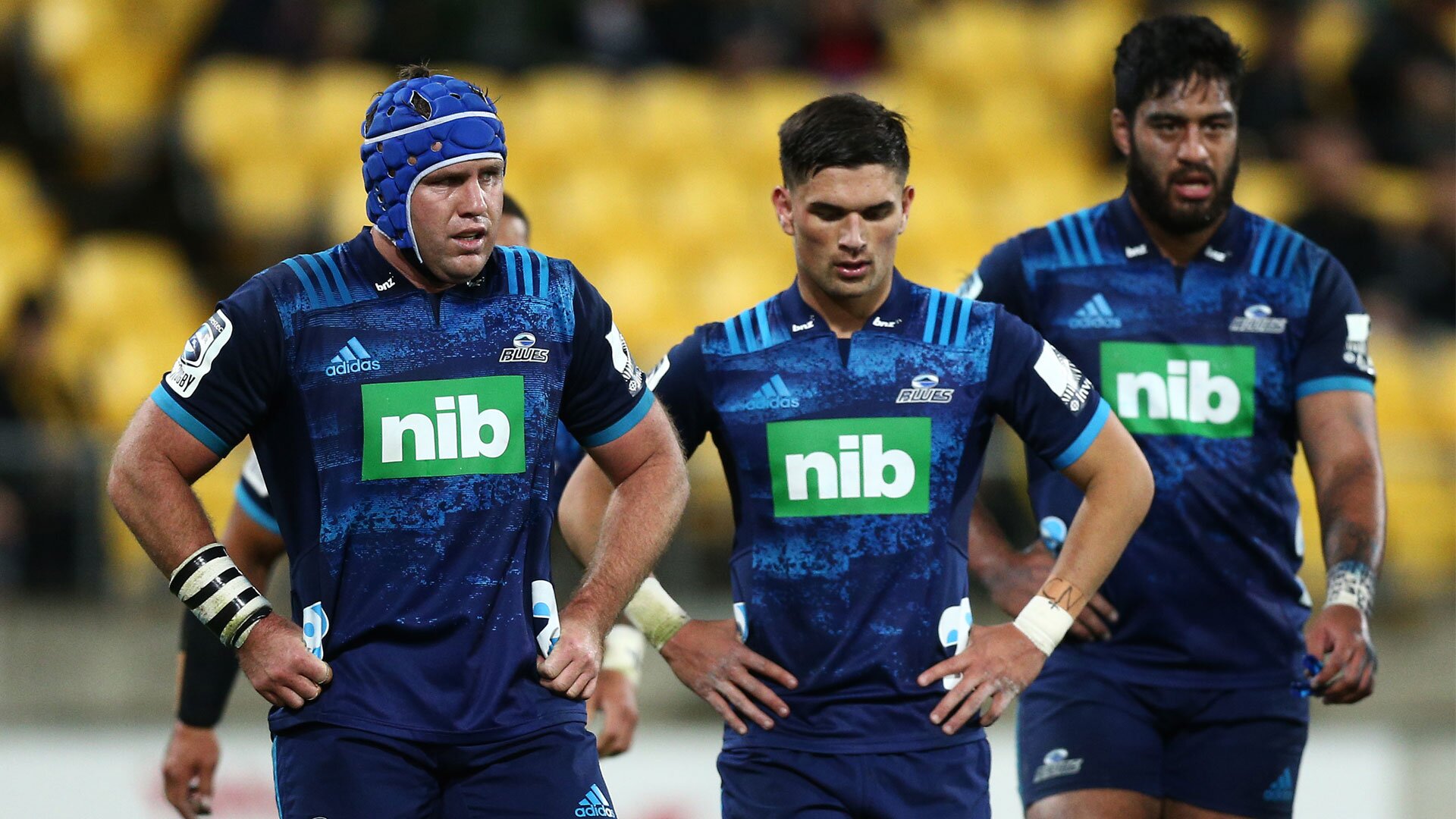Blues need more than just a playmaker

Patrick McKendry / NZ Herald
The Blues’ season has mercifully come to a close after their capitulation to a Hurricanes B team in Wellington and the need for signing a quality first-five such as Beauden Barrett has surely never been as acute as it is now.
Tough questions will always be asked when a team at this level concedes a 24-5 halftime lead, and the fact the Blues managed it against a team without No10 Barrett or fellow All Blacks Jordie Barrett, Ngani Laumape or Matt Procter, Chase Tiatia and Wes Goosen should make them a little more searching.
The visitors weren’t completely dominant in the first 40 minutes at Westpac Stadium but they were in control. That they allowed the Hurricanes to run in 24 unanswered points in the second half without firing an attacking shot themselves is evidence of a worrying fragility and lack of composure.
They are two elements that have lingered around this team for a long time, and the truth of it is the Hurricanes had nothing to play for after qualifying for a home quarter-final, and the home side’s selections reflected that. They had also just travelled home from South Africa.
The Blues blew their chance of beating a Kiwi team away from Auckland for the first time since 2014 and may never get a better one. It should have been a perfect storm in their favour, instead it was a perfect disaster.
Coming back to that lack of composure, a first-five capable of controlling a game and therefore calming those around him would have made a huge difference and it’s more evidence that they need someone like Barrett and preferably sooner rather than later.
As for what the 28-year-old two-time World Rugby player of the year thought of the Blues’ performance is anyone’s guess, but he will know the extent of the challenge ahead if he does to decide to move north. It’s huge. But he could make a tangible difference if he joins after his sabbatical next year as the Blues hope.
Leon MacDonald’s organisational skills have improved aspects of the Blues’ game. Certainly, their defence, now in former head coach Tana Umaga’s portfolio, was much improved (although not so much in the second half at Westpac Stadium) and their scrummaging and mauling was far better under new forwards coach Tom Coventry.
It was their attack which disappointed time and again, and despite a backline containing the firepower of Rieko Ioane, Melani Nanai, (the albeit mostly injured) Sonny Bill Williams, Ma’a Nonu and newcomers Tanielu Tele’a and Caleb Clarke.
Quite simply, they didn’t score enough tries, and as he surveys a future without Williams and Nonu and Beauden Barrett – the latter for another year at least – fixing that has to be a priority for MacDonald.
Associated with that is the requirement to put kill teams dead when they get the opportunity as they did on Saturday.
“It wasn’t a great result, I’ll be the first to admit that, I was disappointed with it,” MacDonald said afterwards.
“When you’re 24-5 up, there are plenty of opportunities in the second half to be able to take that game by the scruff of the neck and put them to bed, but we didn’t take them. That’s where we’ve got to be better.
“We’ve reflected a lot as a coaching group about how we can get the most influence in this group in the off-season and how we’re going to keep building on the good things we’re doing, but eliminate their mistakes and get our game understanding better so we can take control of the game.
“You don’t come into a role like this and not expect it to be difficult. It’s been difficult for a long period of time, but I’m excited about it, because when we get there, it’s going to be a great feeling.
“I’m really confident in the coaching group that we’re doing the right things. I’m confident in the core of players that we’ll take through with us and when we get to that finish line where we want to get to, it’s going to be much more special.”
This article first appeared on nzherald.co.nz and is republished with permission.















































































